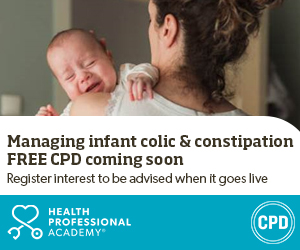By Wayne Gardiner
Monitored dosage systems (MDS), or multicompartment compliance aids as they are also known, have moved on considerably in recent years. Traditionally in pack form, they are card-based to hold two or three solid oral medicines to be taken at different times across the week.

Today, they have evolved into valuable, innovative services, and technology-enabled solutions now mean greater flexibility than the more traditional options.
Over the years, there has been controversy over the place for MDS, and opinion divided on the benefits over and above traditional methods.
The original pack use was thought to encourage greater independence, yet advances in MDS have seen smart technology designed for health and independence, even sending audio voice alarms and text messages to the patient, family member or carers, thus creating medication management devices to assist patients to take the right medicine, in the right dose and at the right time.
A further concern was that many medicines could not, at that time, be dispensed via MDS; however, this is no longer the case.
MDS have progressed from holding a few medicines to becoming sophisticated total medication management systems that hold multiple medicines, up to 12 in some instances, including medicines that could not traditionally be dispensed in this way such as hygroscopic medication.
Advancements in technology have also provided the ability to accommodate liquid medication, whereas in the past, MDS were only capable of handling basic administration of solid oral medications.
MDS in care homes
As the industry is changing from a supply to a service-led model, pharmacies are naturally changing from dispensing to providing services to meet the needs of their communities. Providing MDS to those in care, including domiciliary and care homes, is an attractive option for pharmacies as it can be an entry point to provide additional services for those patients.
For instance, alongside MDS, pharmacies are offering medicines management as another service, looking after the patient more holistically, and at the same time, opening up another revenue stream. This may include offering optical and audiology services in the comfort of residents’ homes, vaccinations for both residents and staff, training for staff on the safety of handling medication, and so on.
Best in class systems now allow incorporation with smart devices – allowing pharmacies and carers to enhance their services further and provide a robust healthcare solution to patients.
Technology developments in this area also mean that pharmacies can provide more continuity of care, as smart devices enable greater interaction with patients who they may not see regularly in the pharmacy itself.
Tool to help patients
Where MDS is a tool to help patients understand their own dosing, smart devices such as Biodose Connect go further and help patients adhere to complex medication regimes, therefore, enabling them to remain independent and prevent hospital re-admission. With non-adherence to medication contributing to up to eight per cent of hospital admissions and readmissions, innovations like this are essential to the healthcare system.
Smart devices bring new ways of working and a number of benefits too. To reduce the risk of missing doses, tailored alerts are created, including flashing lights, customisable alarms and voice messages.
If medication is not removed, chosen contacts can receive a customised alert via a text or email. Similarly, if users aren’t taking medication as prescribed, the online dashboard can offer timely interventions to support positive outcomes.
Such advances, combined with other technology developments, such as barcoding which also saves time in medication administration, reduce medicines wastage, and improves patient safety, making the process more simple, accurate, and safe.
Success in North West
There are pharmacies that have established dedicated care home services to position themselves as specialists in this area, and this is evident in the North West where a number of pharmacies have established strong links with care homes in their community.
Building long-term relationships with care and nursing homes in this way has proved to be an effective way to grow their business, drive best practice in medication management, differentiate their businesses in a challenging health economy, and adapt in an increasingly competitive pharmacy environment.
By pharmacies offering intelligent medication management, in turn, it is an attractive solution for care home managers, addressing a number of issues they face on a daily basis such as improving medication administration while reducing errors, enabling residents to remain independent, reducing the length of time taken to complete medicine rounds, and saving storage space by taking up less space than original packs.
The evolution of MDS into services is reducing the burden on the local health and social economy through bringing savings in both primary and secondary care.
MDS systems today support a personcentred approach, and recent innovative technology-enabled developments have overcome the concerns that it once raised, positioning it as an attractive opportunity for pharmacies to explore further.
Wayne Gardiner is a customer service lead at family-owned Issa Group
This article also appears in the March issue of Pharmacy Business.









